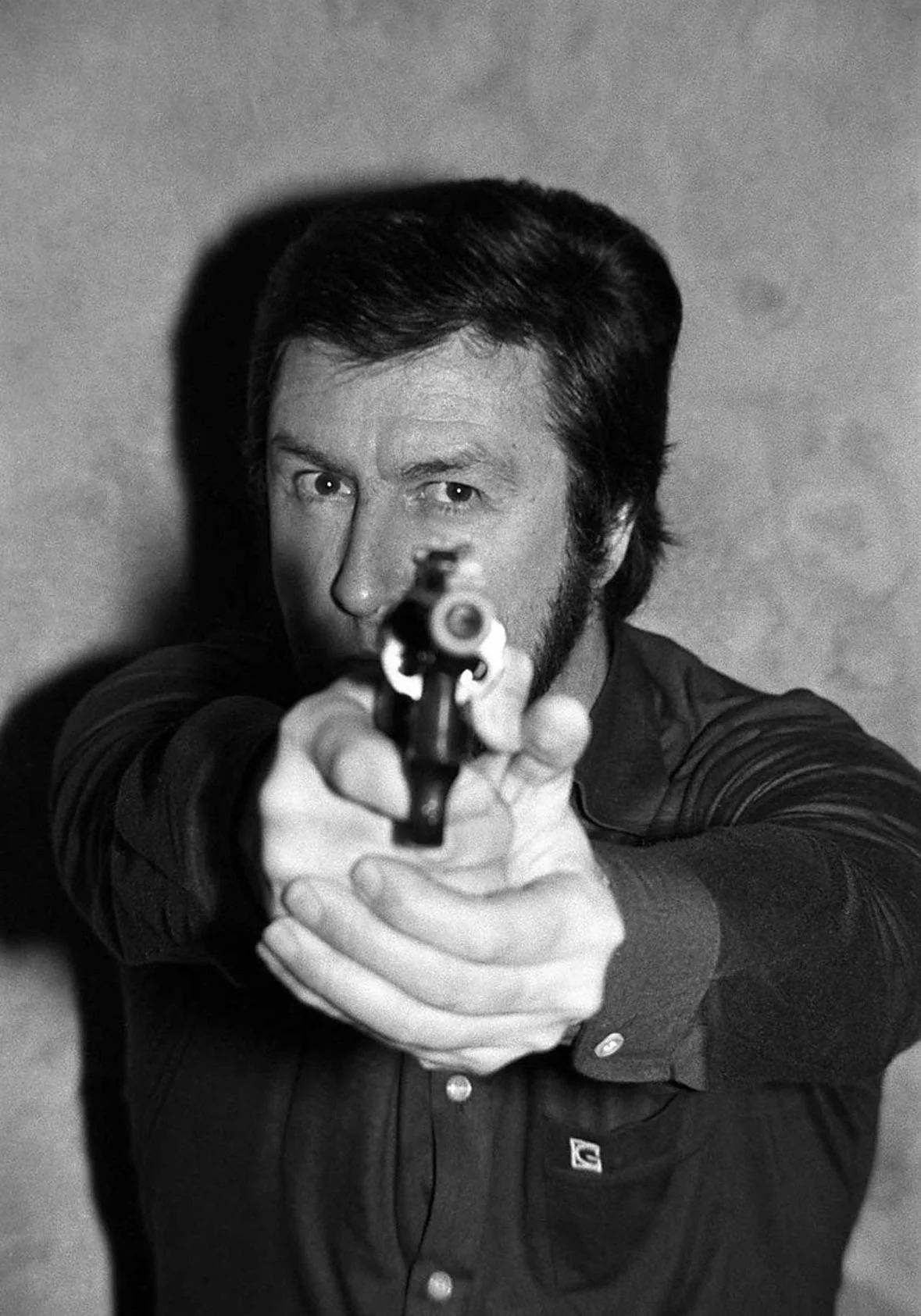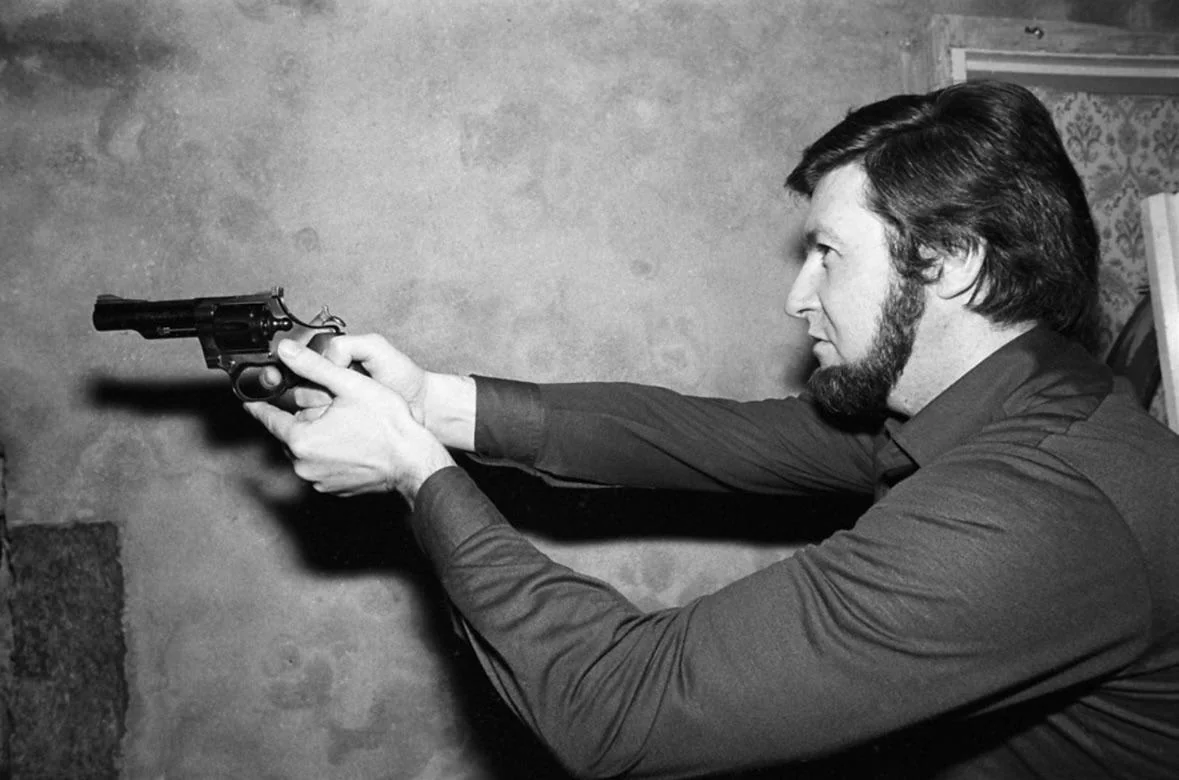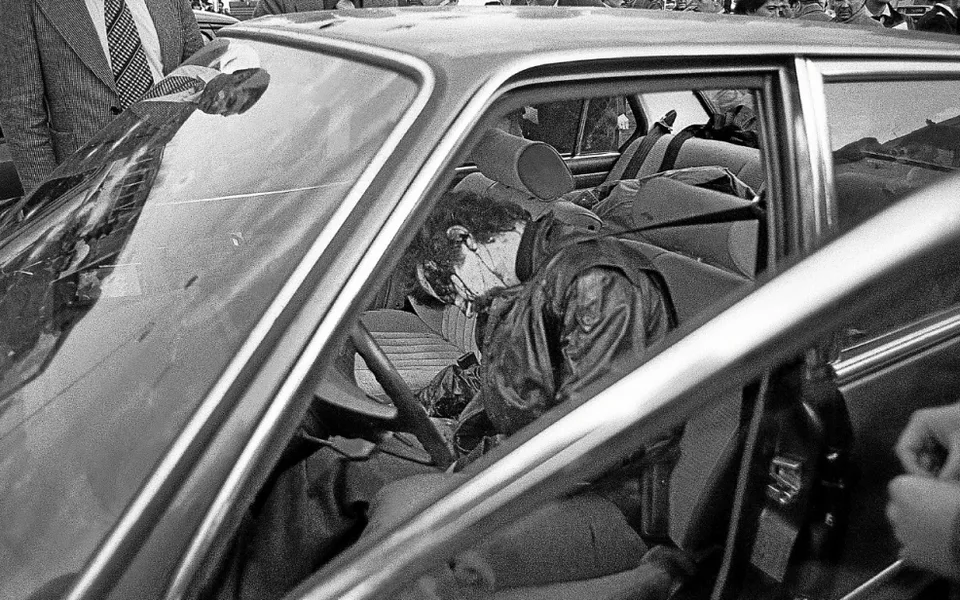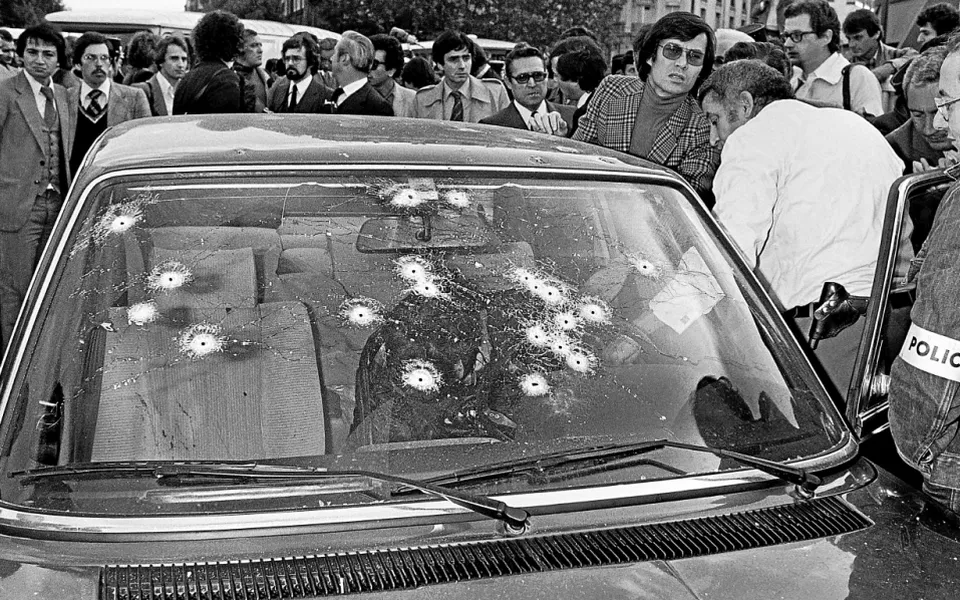Jacques Mesrine: France's Most Audacious Criminal and His Relentless Game of Cops and Robbers
- dthholland
- Feb 12
- 5 min read

Jacques Mesrine wasn’t just any criminal—he was a one-man crime wave, a walking, talking, bank-robbing spectacle who made law enforcement look like a bunch of bumbling extras in a slapstick comedy. Known as "The Man of a Thousand Faces," Mesrine was France’s most infamous outlaw, a master of disguise, and a compulsive escape artist who seemed to view prison sentences as mere inconveniences. He was the kind of criminal who would rob two banks in a single day, just minutes apart, and then smirk as the police showed up at the wrong one. If criminals had rock star status, Mesrine was their Mick Jagger—except with more wigs and slightly worse life choices.
The Making of a Notorious Outlaw
Born on 28th December 1936 in Clichy-la-Garenne, just outside Paris, Mesrine came from a well-off, aristocratic family and had what appeared to be an idyllic childhood. His parents, determined to give him the best education, sent him to the prestigious Catholic Collège de Juilly. Unfortunately, young Jacques took one look at discipline and promptly decided it wasn’t for him. His expulsion for attacking the principal was a clear sign that his future would not involve Latin studies or a respectable desk job.

Instead, Mesrine developed a taste for rebellion and crime, much to his family’s horror. After a brief stint in a respectable job, he married young, divorced quickly, and then, in an unusual career move, joined the French Army. His time in the Algerian War was less about serving his country and more about acquiring a hardened criminal skill set. Serving in a torture squad didn’t just desensitise him to violence; it gave him an edge—one that he would later apply liberally in his chosen profession. He was even decorated with the Cross for Military Valour by General Charles de Gaulle, proving that being ruthless had its rewards.
Bank Robberies, Mistakes, and an Unfortunate Stay in Canada
Returning to France, Mesrine found regular employment mundane and unworthy of his talents. Instead, he dived headfirst into crime, knocking over banks with an efficiency that made financial institutions his personal ATMs. Business was booming, but even the most skilled criminals occasionally rob the wrong people. When Mesrine stole from individuals who had far more firepower and far fewer scruples than the police, he realised that discretion was the better part of valour and fled to Canada.
In Quebec, he filled his days by kidnapping billionaire Georges Deslauriers, proving that Canadian hospitality extended only so far. Unfortunately, his plan was slightly flawed when the sedative he used on Deslauriers turned out to be about as effective as warm milk, leading to his capture. Mesrine was thrown into a maximum-security prison, but a few locked doors and some stern guards weren’t going to stop him. Armed with nothing but a pair of pliers, he made an escape that put Hollywood prison breaks to shame. However, merely escaping wasn’t enough for Mesrine—he had to return with a friend and some sawed-off shotguns to liberate the rest of the prison wing. The attempt failed, but one must admire the audacity.
Back in France: Two Banks a Day Keeps the Police Away
After pulling off a series of daring bank heists in Canada, Mesrine headed back to France, where he declared an all-out war on bankers. His strategy was innovative: robbing two banks in the same day, mere minutes apart. By the time the police arrived at the first scene, he was already emptying the cash registers at the second. The sheer cheek of it was almost admirable—Mesrine treated the authorities like hapless extras in a farcical stage play, and they played their roles with frustrating predictability.
His disguises were legendary—wigs, glasses, shaved heads, and costumes straight out of a theatre wardrobe. He was the criminal equivalent of a chameleon, blending in just long enough to clean out a vault before vanishing into thin air.

Escape Artist Extraordinaire
Mesrine was arrested in 1973, but being in custody was, for him, more of a minor inconvenience than an actual punishment. In what must be one of the most creative escape plans in history, he faked a bout of severe diarrhoea, retrieved a gun that had been stashed for him in a courthouse toilet, and took a judge hostage. Most people try to avoid courtrooms altogether—Mesrine used them as a means of transportation.
Jacques Mesrine poses for the cameras with his Colt Trooper Mk III (1978).
By 1978, he had perfected his escape act. Locked away in La Santé, a prison deemed escape-proof, Mesrine decided to prove that even the best security measures were mere suggestions when faced with true ingenuity. Using a gun, stolen keys, and a grappling hook (yes, a grappling hook), he made an action-hero-style exit.
Jacques Mesrine: Public Enemy No. 1 (and Loving It)
At the height of his infamy, Mesrine wasn’t just a criminal—he was a celebrity. He gave interviews to major magazines, posed with machine guns like a gangster from a pulp novel, and even enjoyed a stint as the most popular man in France. He was the outlaw the public adored, the Robin Hood of the 1970s, albeit one who kept the money for himself.

However, his reputation took a serious hit when he decided that torturing a journalist who had written negatively about him was a suitable way to respond to criticism. Apparently, Mesrine had missed the memo that public relations worked better with a good press release than a gun barrel.
Not content with merely robbing banks and humiliating the police, he attempted to kidnap a judge. When that plan fell through, he settled for kidnapping a wealthy businessman instead, leading to a presidential decree that Jacques Mesrine was officially too much of a headache to keep around.
A Dramatic Ending Fit for a Criminal Legend
On 2nd November 1979, Mesrine’s luck finally ran out. While driving his gold BMW, he stopped at a junction behind what appeared to be an ordinary truck. Unfortunately for him, this was no ordinary truck. When the tarp was pulled back, a heavily armed squad of elite police officers was waiting. In a moment of tragic irony, he was killed in a hail of 52 bullets—without warning, echoing his own infamous words: “Police must shoot and then interrogate.”
Thus ended the career of France’s most charismatic criminal. Mesrine wasn’t just a bank robber; he was an entertainer, a showman, and a constant thorn in the side of the law. His life was a chaotic, unpredictable, action-packed crime spree that Hollywood couldn’t have scripted better. He may have been a villain, but he was a villain with style, and for that, the world remembers him.
In the grand tradition of notorious outlaws, Mesrine’s story was immortalised in the 2008 two-part film Mesrine, ensuring that his legend lives on. And somewhere, deep in the heart of Paris, there’s probably still police officer's checking two banks at once, just in case.






















































